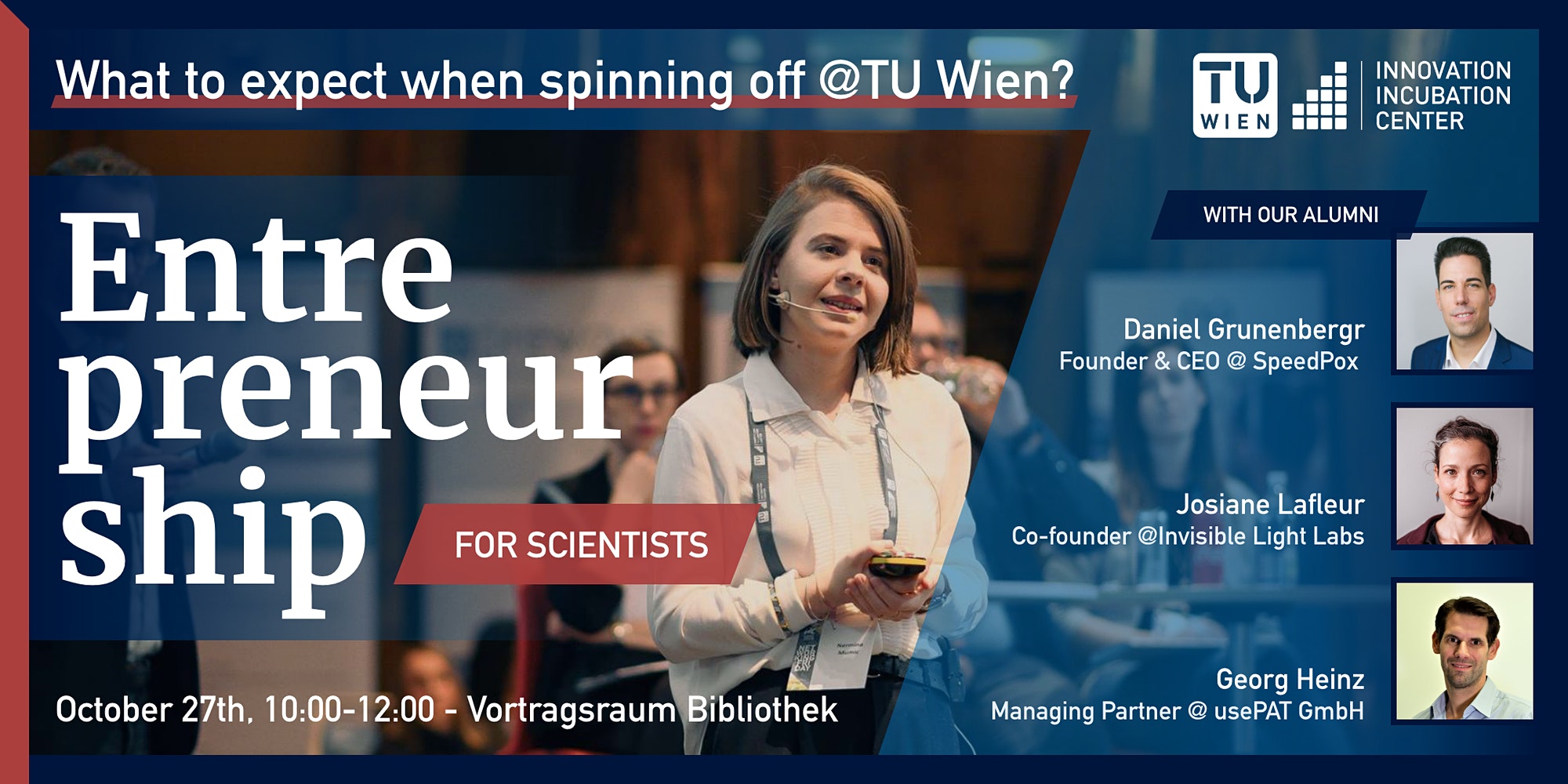

“Great CEOs face the pain. They deal with the sleepless nights, the cold sweats, and what my friend the great Alfred Chuang (legendary co-founder and CEO of BEA Systems) calls “the torture.” Whenever I meet a successful CEO, I ask them how they did it. Mediocre CEOs point to their brilliant strategic moves or their intuitive business sense or a variety of other self-congratulatory explanations. Great CEOs tend to be remarkably consistent in their answers. They all say, “I didn’t quit.” – Ben Horowitz, author of “The Hard Thing About Hard Things”
Being a first-time founder has its blessings and its courses. During this session, we want to talk about the realistic goals of embarking on the exciting and challenging journey of starting your first business. Especially if you have been working in academia for the past years and you want right now to make the leap and start your own company based on your research results, you will have a better experience starting a spinout if you are armed with some expectations about your likely journey. Spinning-off requires a clear time and usually also money commitment, and its success highly depends on the founder team’s passion, irrational optimism and deep faith in the technology they’ve developed. From writing their first business plan to their first investment and scaling up, 2 founders from 2 different TU Wien-affiliated companies in different stages share their experience with transforming their research into successful products or services.
– have a good overview of what obstacles to avoid when founding a university spin-out
– have gained some insights on how to structure your next steps
Josiane P. Lafleur holds a doctorate degree in chemistry from McGill University (Canada). She worked for several years in research and academia, first as a postdoctoral fellow at the Technical University of Denmark and then as an Assistant Professor at the University of Copenhagen (Denmark). In 2018, she decided to take the plunge and co-founded the TU Wien spin-off Invisible-Light Labs GmbH. The aim of Invisible-Light Labs is to bring radically new infrared sensing technology out of the confines of the laboratory, to the market where it can have a positive impact on our society.
Check Josiane Lafleur on Linkedin
Daniel Grunenberg is the founder & CEO of SpeedPox, a TU Wien spin-off in the field of plastics. SpeedPox offers innovative and ultra-fast curing epoxy systems. Daniel is a polymer chemist and started his studies in Germany, before moving to Vienna in order to conduct his PhD in the field of 3D printing. He also gained professional experience at Evonik Industries and during a research stay at the Technion in Haifa, Israel. After an FFG Spin-off Fellowship under the project name “CURRATEC”, Daniel discovered his passion for entrepreneurship and decided to found SpeedPox GmbH in September 2020. He has successfully completed the “i²c Start Academy”, “TUW i²ncubator” as well as the “I.E.C.T. Summer School on Entrepreneurship”. Daniel has been awarded several prizes at business and start-up competitions, including the “I.E.C.T. Pitch Challenge at European Forum Alpbach” and the “kreativ in die Zukunft 2021” award. In his free time, he likes to do sports (especially tennis) and play the drums.
Check Daniel Grunenberg on Linkedin
Georg Heinz is Managing Partner at usePAT, a high-tech Viennese startup that specialises in ultrasound-based measurements in industrial liquids. Heinz studied Business Administration at WU, and has several years of executive experience in Marketing, Consulting and Operations. In 2018, Heinz, together with Dr. Stefan Radel, founded usePAT. The startup that has won several awards – including the Mercur Startup Star 2018, the INiTS Demo Day and a special prize at the S&B award of the Rudolf-Salinger Fonds and secured a six-figure investment last year. In addition to the expansion of the team, the internationalization of sales, the further development of the products for new customer groups, additional certifications are also planned as next steps.
Check Georg Heinz on Linkedin
The Entrepreneurship for Scientists Series organized by the TU Wien Innovation Incubation Center (i²c) is targeting scientists who would like to enrich or develop a personal entrepreneurial skillset & business competencies, know more about opportunities how to navigate innovations from „the lab“ to society or who would simply like to engage in entrepreneurial thinking. These workshops are free of charge to scientists from all faculties and institutes of TU Wien. Registration required.
_______________________________________________________________________________________